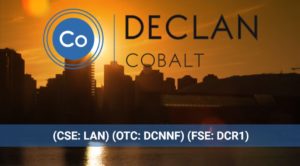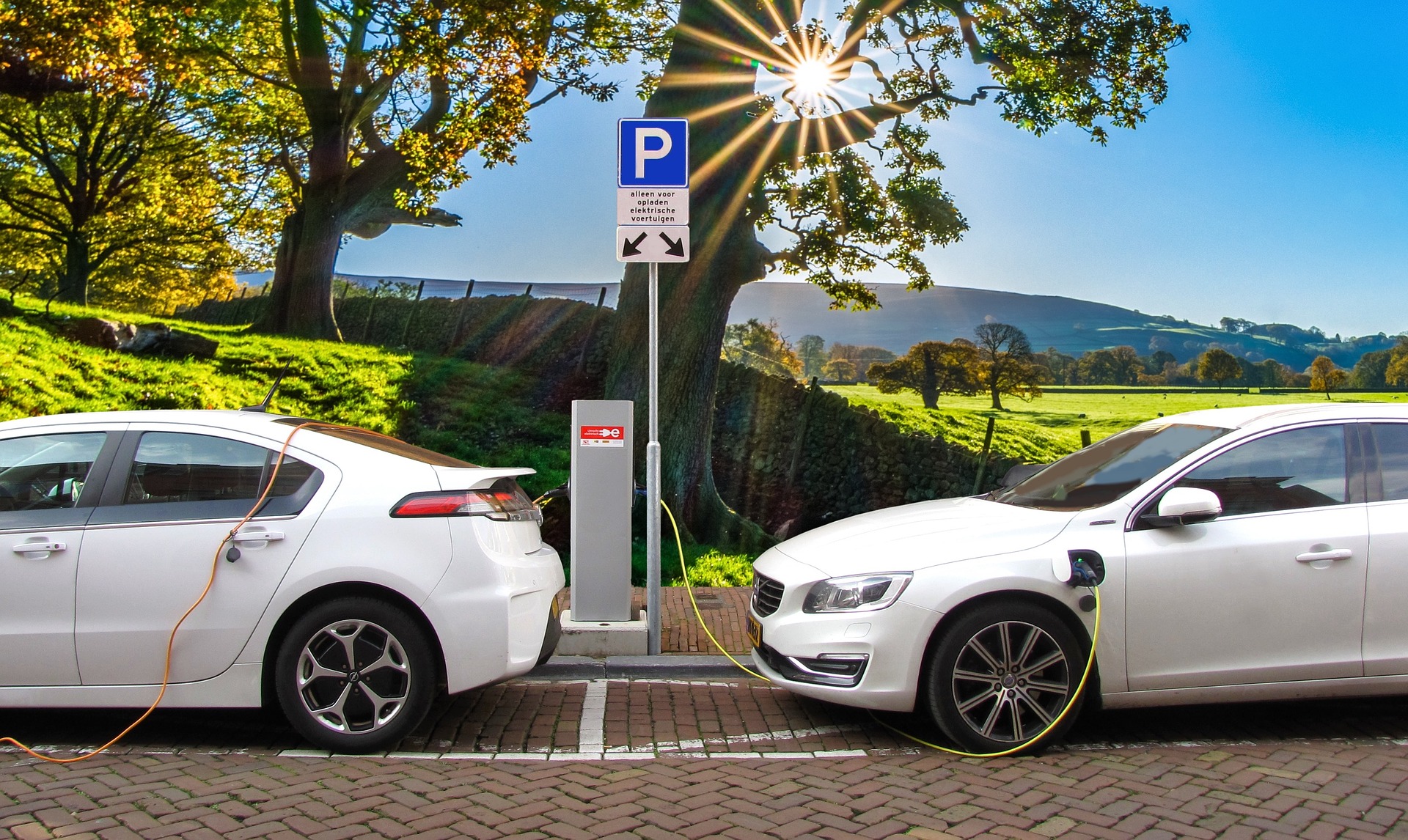How much do you know about what goes into the electronics you use everyday? When the iPhone was unveiled in 2007, Steve Jobs praised it as a “magical” device. That attitude towards high tech–that they “just work”– led to an ignorance in the consumer of what actually goes into making them “just work.”
Recently, however, ethically-savvy consumers and have started to dig a little deeper into what makes the “magic” devices we use everyday work and, more importantly, who is mining the raw materials that go inside them.
This is the birth of a new way of thinking of a vital element in high tech devices: ethical cobalt.
What is Cobalt?
Cobalt is smelted with nickel and copper. The name “cobalt” comes from the German word “kobold” or “goblin” due to the poisonous fumes released by the metal when smelted. Most people think of cobalt as a colour–cobalt blue is a dark, rich blue that has been used as a pigment for centuries in everything from Ming vases to blown glass. While cobalt is still prized for its lustre, the silvery metal is now in high demand for its application in energy storage.
Due to the rise of lithium ion batteries and the increasing demand for electric cars, the price of cobalt surged to a nine-year high in 2017 at more than US$30 a pound–an increase from US$10 in 2015. That demand is expected to increase threefold by 2030.
While cobalt has traditionally–last decade, anyway–been used in powering smartphone batteries, the rise of the electric car is changing where the demand is coming from. The average electric car contains 10kgs of cobalt–1,000 times the amount in an iPhone. Cobalt mining companies are therefore scrambling to meet this demand.
Where are these cobalt mining companies?
Gone are the days of strip mining towns and vast industrial fields. The demand for high tech has been matched by a hunger for ethically sourced and environmentally friendly products. 60% of the world’s cobalt is mined in the Democratic Republic of Congo in what are called “artisanal mines.” These are mines operated by miners who are not employed by a mining company but use mining to supplement their income. Indeed, many artisanal miners do seasonal work: plant crops in the rainy season, mine in the dry season.
Unfortunately, this has led to a vast network or corruption and exploitation, with Amnesty International investigating massive gaps in major industry supply chains. Amnesty estimates that 20% of cobalt mined in the DRC is mined by hand in “narrow man-made tunnels, at risk of fatal accidents and serious lung disease.” Often, children as young as seven are used as cheap labour.
The Ethical Cobalt Solution
The green revolution, of which the electric car is a symbol, is also an ethical one. While the majority of cobalt mining is coming from places like DRC and Zambia, ethically-minded companies are beginning to look elsewhere for alternative sources. Elon Musk, the owner of electric vehicle pioneer Tesla, is rushing to remove cobalt from Tesla batteries completely but has provided no timeline or plan for how that would be done. Panasonic is also in the process of developing a cobalt-free battery, but has also increased their cobalt purchases threefold.
Due to pressure from Amnesty, major tech companies like Apple have begun to publish their resource chains and work to find alternative sources for their raw materials. In 2016, the Chinese Chamber of Commerce for Metals, Minerals, and Chemicals (CCCMMC) launched the Responsible Cobalt Initiative with the support of many companies like Apple and Samsung, with many more signing on since. The RCI’s primary goal is to “increase transparency in the cobalt supply chain and improve supply chain governance.”
Canadian cobalt mining companies are leading the charge when it comes to finding ethical solutions to high tech problems. The aptly-named Cobalt, Ontario has recently been the site of exploration into reopening its mines, once used for silver, in the extraction of cobalt.

Vancouver-based Declan Cobalt recently announced a deal to acquire Tisová Pty Ltd. and TGER Pty Ltd., two major mineral property owners in the Czech Republic and Germany. Eastern Europe has quietly become a hub of electric vehicle production in the past decade. Declan’s new acquisitions are placed less than 150 km from BMW’s main electric vehicle battery supplier. Declan has already announced their VMS (Volcanic Massive Sulfide) project which will expose the massive mineral potential of this Czech-German prospect–a fitting location to mine “kobold.”
Key Take-Away
As the demand for cobalt increases so too will consumer pressure on companies to find ethical sources of the mineral. With initiatives like the RCI searching for transparency in the cobalt supply chain, it will be up to companies like Declan to provide alternative sources to satisfy the demand in an ethical way.
(Note: In this article we mention Declan Cobalt. Declan Cobalt is a client of TrendScan and members of the TrendScan team own options to stock in Declan Cobalt.)

CharlesAbsof
December 10, 2019 at 2:18 pmacyclovir online lasix online buy kamagra buy tetracycline buy tetracycline
BennyDiulp
December 10, 2019 at 9:52 amgeneric lasix lexapro online acyclovir online generic xenical
Michaelmorry
December 10, 2019 at 9:38 amcheap valtrex viagra generic buy metformin online valtrex buy buy lisinopril ventolin online cheap cialis lisinopril
Michaelmorry
December 10, 2019 at 9:12 amcafergot buy viagra buy buy propecia buy prozac
KennethKic
December 10, 2019 at 7:54 ambuy tadalafil cheap prednisolone cheap allopurinol buy prednisolone buy albuterol buy generic lasix lasix buy buy generic levitra
Michaelmorry
December 10, 2019 at 6:37 amcialis generic buy generic cialis buy prozac online
CharlesAbsof
December 10, 2019 at 5:48 amamoxicillin and cat
CharlesAbsof
December 10, 2019 at 4:58 ambuy generic levitra cheap sildenafil
CharlesAbsof
December 10, 2019 at 3:06 amkamagra generic generic prednisolone
Brettrek
December 10, 2019 at 12:34 ambuy metformin buy generic cialis
CharlesAbsof
December 9, 2019 at 11:44 pmbuy generic cafergot
BennyDiulp
December 9, 2019 at 8:47 pmcafergot buy prednisolone online lisinopril buy cheap doxycycline buy propecia buy propecia online levitra generic generic lexapro cheap prednisolone valtrex generic buy zithromax cheap propecia cheap albuterol prednisolone online cialis online
Michaelmorry
December 9, 2019 at 7:52 pmbuy ventolin generic tadalafil buy cialis xenical buy tetracycline buy tadalis buy
Michaelmorry
December 9, 2019 at 7:40 pmbuy lexapro online tadalafil generic generic cialis buy prozac cheap prednisone
KennethKic
December 9, 2019 at 6:21 pmcheap prozac buy prozac buy valtrex online sildenafil buy lasix online metformin buy cheap prednisolone generic tadalafil buy amoxicillin generic lasix generic kamagra buy prednisone cafergot online buy xenical online buy viagra online
Brettrek
December 9, 2019 at 5:53 pmgeneric metformin buy cafergot
Michaelmorry
December 9, 2019 at 5:26 pmlevitra generic lexapro prednisolone buy buy generic albuterol buy tadalafil online generic doxycycline baclofen generic
EllLese
August 6, 2019 at 9:25 amItching Caused By Amoxicillin Pilule Cialis Pas Cher Buy Doxycycline 30 Mg how to get a free trial of levitra Pharmacie Canadienne Cialis Propecia Engorda Garantia De Satisfaccion
EllLese
July 31, 2019 at 1:12 pmKamagra Munchen Levoxyl Pharm Prandin black market zoloft Achat Cialis A Paris Keflex Fever Blister
KelActich
May 9, 2019 at 7:04 pmXenical Sans Ordonnance Belgique Viagra Orders Overnight Delivery Valuepharmaceuticals generic cialis from india Buy Cialis 40 Mg In Toronto On Line Prescription For Viagra
KelActich
April 22, 2019 at 9:12 pmCialis Ingrediente Activo Overdose Of Zithromax Cytotec En Ligne